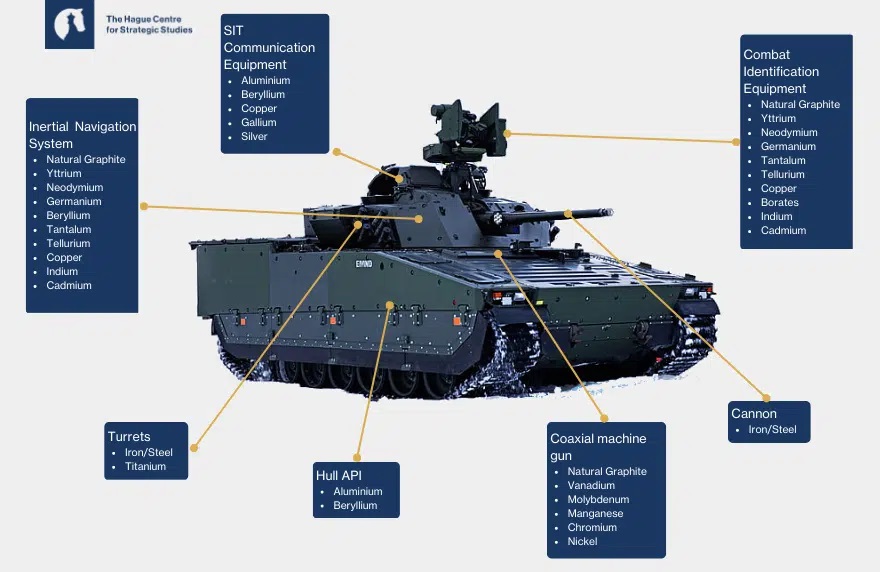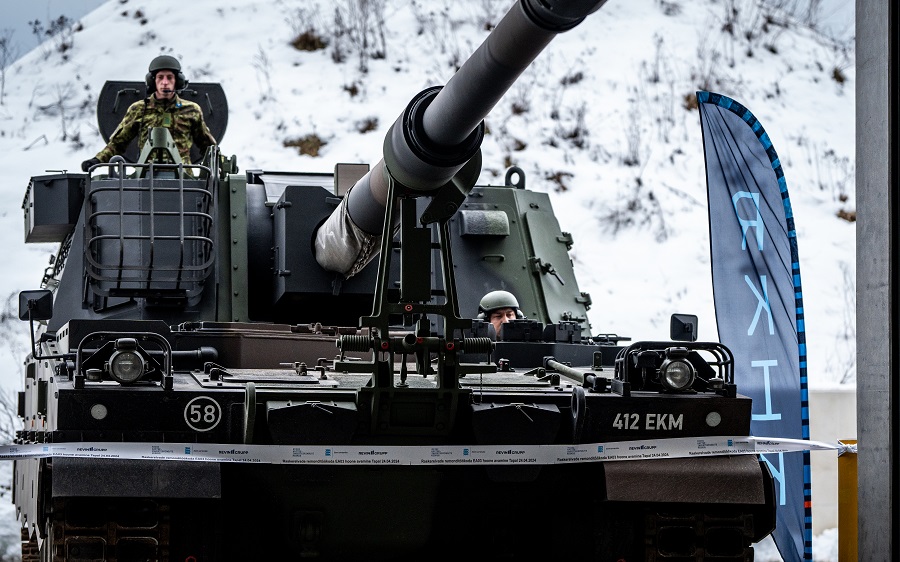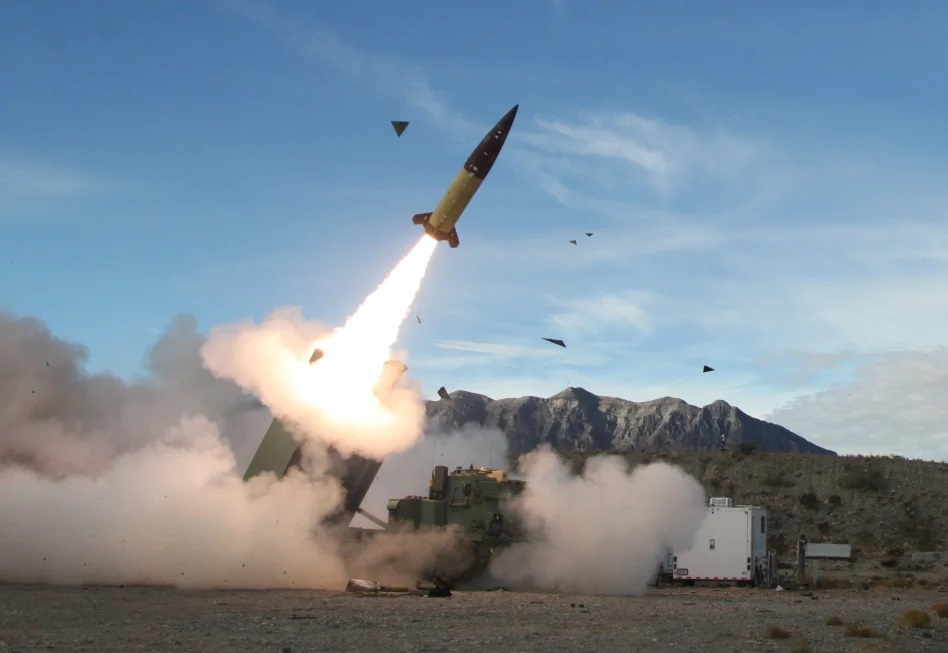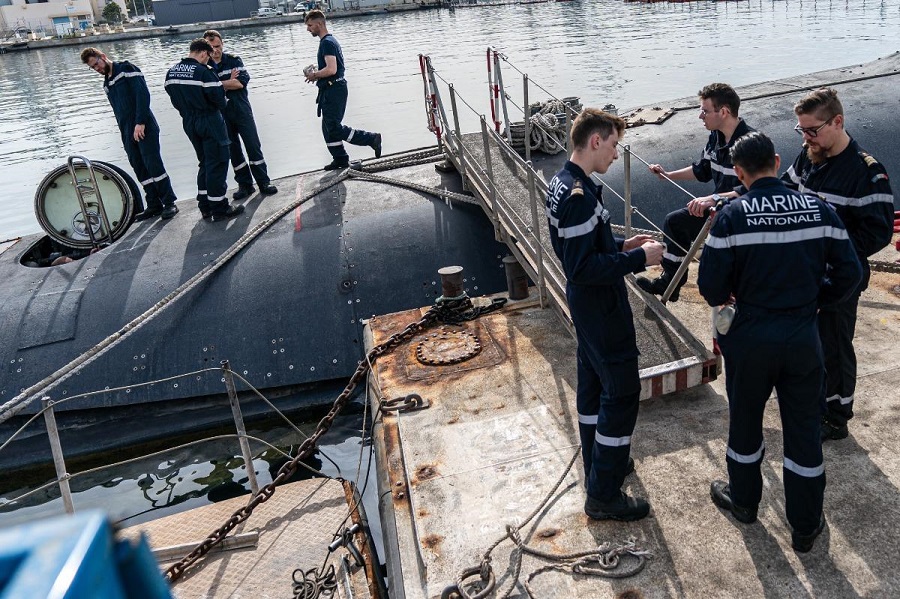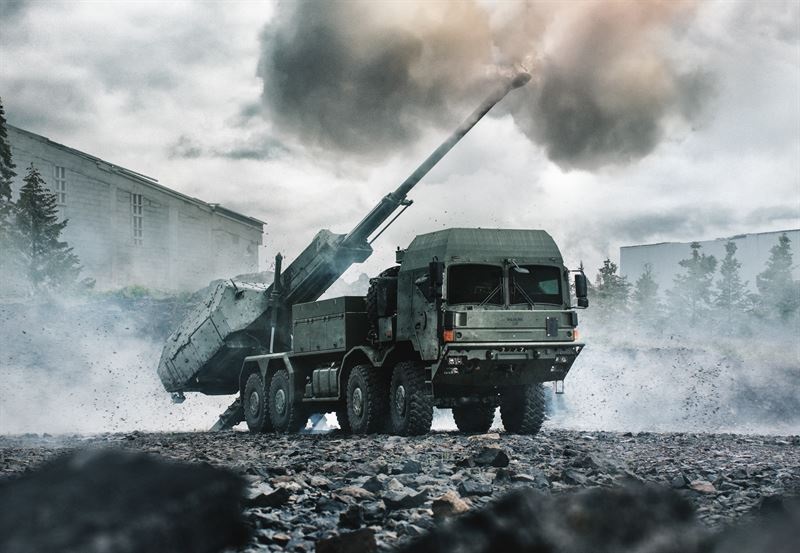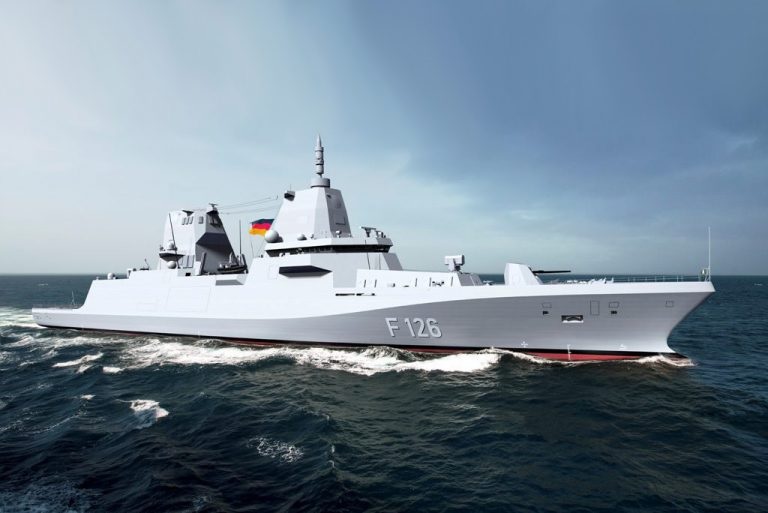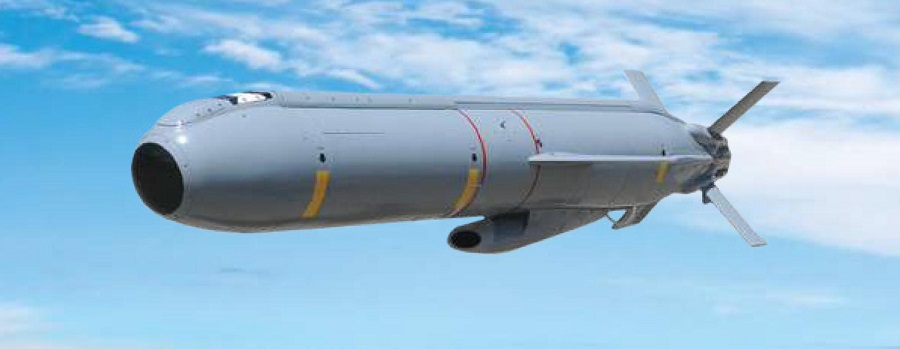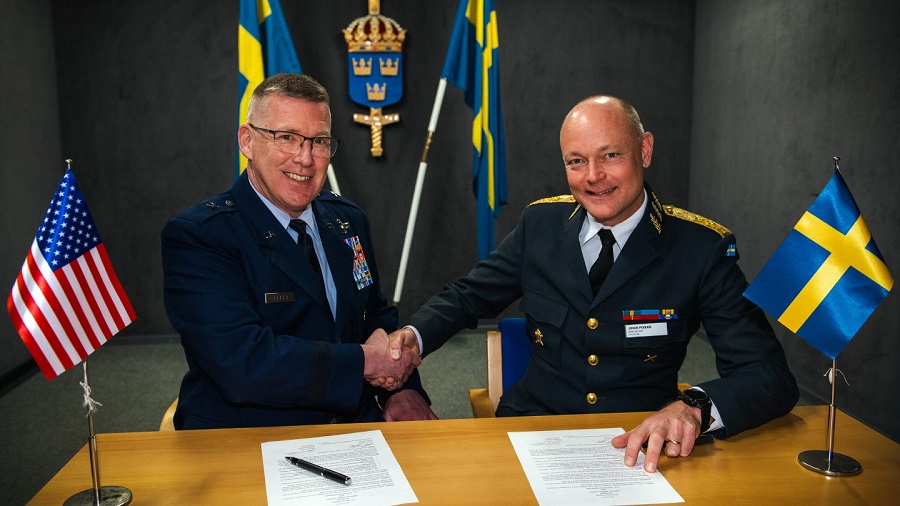Forty critical and ‘soon-to-be’ critical raw materials are deemed strategic for the European defence industry in this report. These are used across the air, sea and land domains in various military applications and components.
Based on an assessment of probability and impact of supply disruptions, materials are ranked according to their supply risk for European defence. Probability is measured as the short and long-term supply security and geopolitical risks, including the diversity of a material’s supply base, the potential for supply chain bottlenecks as well as the reliability and stability of suppliers. Impact is operationalized through the frequency of material use across defence applications.
The importance of raw materials differs across military domains. Materials deemed very critical for aircrafts, helicopters, and missiles might not be as critical to build corvettes, aircraft carriers and submarines. Moreover, the categorization of supply risk differs from the one used in the European Union’s energy and digital transitions.
Securing the supply of strategic raw materials for defence requires cooperation between the civil and military domain, cooperation at the European level to overcome supply-related obstacles, and transatlantic dialogue to ensure the supply of military technology.
Read the research paper on Hague Centre for Strategic Studies website.


